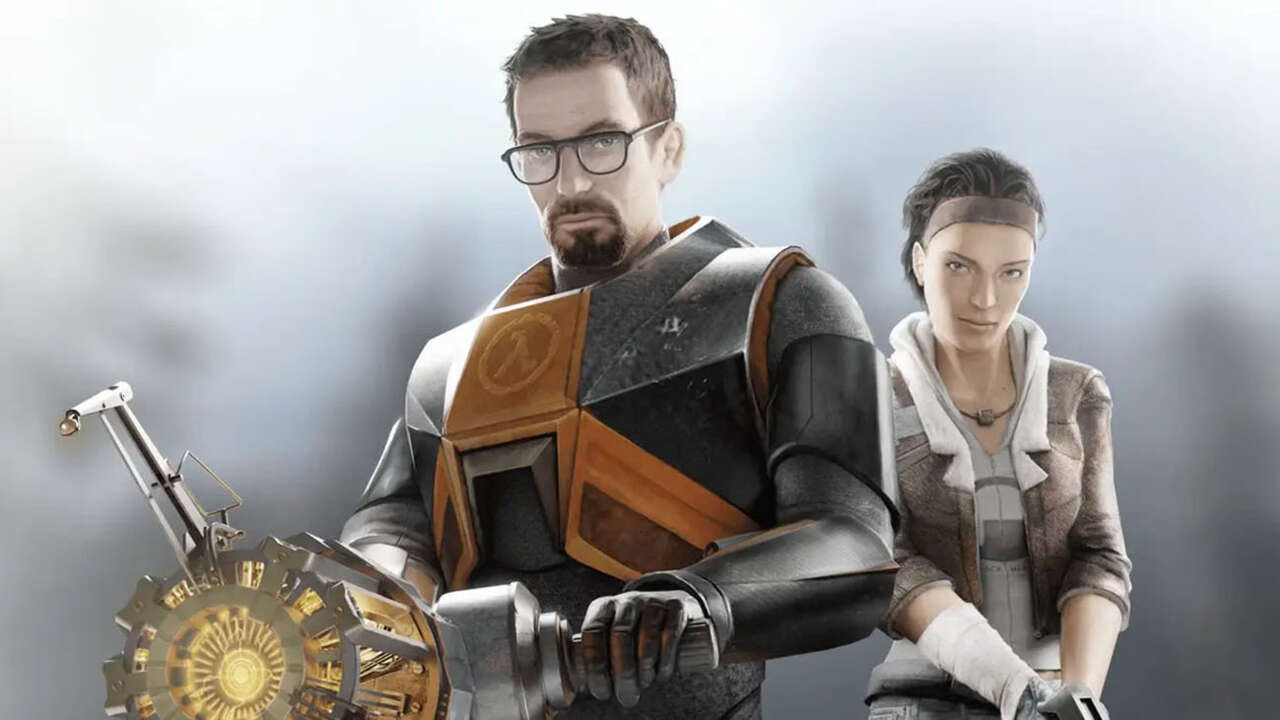This week marks the 20th anniversary of Half-Life 2, Valve’s seminal first-person shooter and arguably one of the genre’s greatest games. To celebrate the occasion, Valve released a nearly two-hour documentary on the making of the game, which included the story of how Valve’s future was threatened by a lawsuit from its former publisher, Vivendi.
As related by PC Gamer and 80 Level, the story behind the lawsuit begins about one hour into the documentary, and that tale flows in and out of the background of Half-Life 2’s development over the next 43 minutes of the movie. At the heart of the lawsuit was Valve’s assertion that Vivendi was distributing Counter-Strike to South Korean cyber cafes without permission from Valve itself.
In response to Valve’s lawsuit asserting its rights, Vivendi responded with multiple counter-claims against the former, as well as Valve COO Scott Lynch and co-founder Gabe Newell. The legal battle was such a drain on Valve’s resources that the company nearly went bankrupt. Newell also revealed that he was nearly personally bankrupted as well, and he had to put up his house for sale in order to keep fighting.
A deal with another publisher gave Valve some much-needed breathing room. But the turning point in the case came when Vivendi handed over millions of pages of emails during the discovery phase, which were all in Korean. As it happened, Valve had a summer intern–a native Korean speaker who is only mentioned by his first name, Andrew–who found the proverbial smoking gun in all of those messages. In an exchange between two of Vivendi’s vice presidents, one of them mentioned that he had “destroyed those Valve documents like you asked.”
“I did a lot of lawsuits for a long time,” recalled Valve general counsel Karl Quackenbush. “I never saw anything like that. Never. Maybe there was document destruction that couldn’t be proved, but that was like, ‘We’re talking about it in writing.’ I’d never seen that before. At that point, Judge Zilly said, ‘All matters of fact are now according to Valve. You don’t get to contest any of those. Now we’re just discussing the [settlement], how much you’re gonna have to pay and what the damages are.'”
Valve emerged from that lawsuit with a settlement that returned its IP from Vivendi and secured its future as a publisher and as a distributer for other publishers through Steam. That bright future might never have happened without Andrew. But the documentary never mentions whether Andrew was offered a job with Valve, which would have been a fitting reward for saving the company.
Source link
